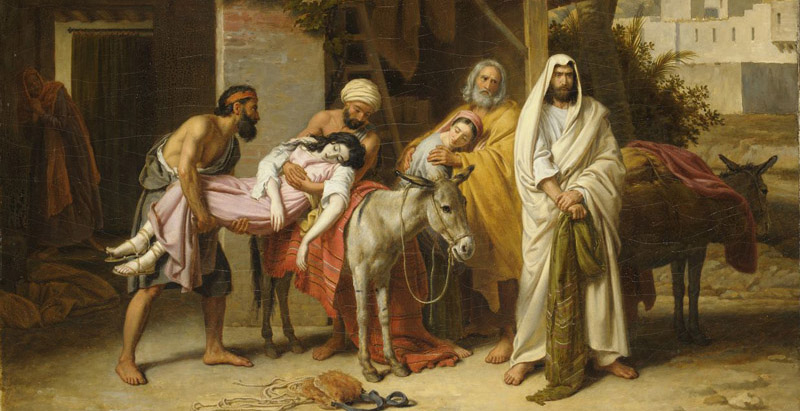“Without men, women become precious; without women, men become philistines.”
In other words, we make ourselves into ninnies and brutes. This footnote by Karl Barth to a section of his Dogmatics has stayed with me for almost half a century. I’ve lost the citation, but the words keep repeating in my mind since reading the Baptist News Global article about the “text of terror” chosen for a required seminary exam by the Presbyterian Church (USA) ordination committee.

Linda Cross
Unsurprisingly, there has been substantial pushback regarding the use of the Judges 19 passage. The text tells of several men, including both the husband and the father of the eventual victim, negotiating for a female to satisfy their brutal lust. Without advance notice of the text, students were given only five days to submit the mandatory paper.
The text is among the most horrifying in Jewish and Christian Scripture, but it does not stand alone either in Scripture or in history. It is as current and grievous as the latest news feed.
“It is as current and grievous as the latest news feed.”
I am not Presbyterian, nor a pastor, nor a survivor of sexual assault. Yet I think the article expresses assumptions and raises significant questions that need to be considered.
One stated assumption is that such brutal texts are never included in the Lectionary and for all practical purposes never used in preaching. According to the article, the assignment is intended to assess “whether a candidate can exegete a text, demonstrate knowledge of the biblical language and apply the passage in preaching.”
Does an assumption that we never will preach on a particular Scripture provide a valid reason for not dealing with that passage in our studies? We certainly don’t have to be ordained to face questions concerning violent assault, gang rape and horrifying brutality in our daily lives and in the experiences of family members, friends and congregants.
If we don’t struggle with these Scriptures in our personal study, as well as in Bible study groups and certainly in graduate studies, we flatten our understanding of the honesty and depths of Scripture. We deprive ourselves as well as our students, congregations and fellow strugglers of the deep wisdom and searing grace of engaging thoughtfully and prayerfully with these reminders of the depths of human depravity.

“Rocky Landscape with Hagar and Ishmael,” Thomas Gainsborough, 1788, at the National Museum of Wales. This was Gainsborough’s only religious composition.
In her silence-breaking book Texts of Terror, Phyllis Trible challenges us to consider four texts. In addition to the unnamed and unmourned victim in Judges 19, Trible reflects on the story of Hagar’s use and then abandonment by God’s chosen one, Abraham (Genesis 16:1-16; 21:9-21); Tamar, unfortunate daughter of God’s favorite, David (2 Samuel 13:1-22); and Israelite judge Jephthah’s daughter, unnamed victim of her father’s triumphant religiosity (Judges 11:29-40).
The ancient scribes often don’t remember the names of these and other victims. These texts don’t suggest even the merest sympathy for the victims’ suffering.
Although God doesn’t appear in these and other stories of abandoned, abused and willingly betrayed female sacrifices, God does rescue Isaac from Father Abraham’s raised knife. Does God’s sympathy extend only to male heirs of important men?
“Does God’s sympathy extend only to male heirs of important men?”
The God of the Old Testament, as I was taught in Sunday school and as Jews and Christians interpret it today, is clearly opposed to human sacrifice. Yet here we are, wanting but unable to ignore these texts precisely because of the importance and barbarism of the men with whom they are associated.
In this Holy Week, as we dread and ponder Jesus’ crucifixion, shouldn’t we consider the significance of these starkly narrated memories woven into the very fabric of holy Scripture? After all, these victims’ stories are in Scripture alongside the lepers, the blind and the lame. Do we have any gospel to share with them?
If there is outrage in Scripture, do we fail to see it because we avert our eyes? Perhaps we should follow the Lectionary a little more discerningly, recognizing the same patriarchal patterns so deeply woven into Scripture also may be woven into the Lectionary.
We are coming to understand we must pay much more discerning attention to pronouns in our studies and relationships. It may be time to revise the lectionaries we use, as well.
Another assumption in the PCUSA case is that considering such horrific passages almost certainly will cause trauma for at least some of the ordination candidates. That may be true. But isn’t it almost equally certain these seminarians, both women and men who have suffered sexual trauma themselves, will be called upon to minister to traumatized victims of sexual violence? Isn’t seminary exactly the place these trauma-inducing texts should be considered?
This assumption also comes dreadfully close to raising the issue of supposed “female delicacy.” It hints that female seminarians may not be tough enough to deal with the barbarisms remembered in Scripture. This seems remarkably similar to protests of female inadequacy for operating rooms, flight decks and pulpits. And, incidentally, this avoidance completely ignores the fact that much sexual violence is perpetrated against victims precisely because they do not conform to others’ gender standards.

In the daily news we are witnessing an intersection of horrors: Russia’s appalling war on Ukraine; immigrants fleeing cartels, starvation and natural disasters; cities, towns and villages disappearing into rubble. In our own country our screens are filled with mass killings on an ever-greater scale.
“Is the dismemberment of children by military-style rifles any less disturbing than the dismemberment of a nameless concubine?”
Is the dismemberment of children by military-style rifles any less disturbing than the dismemberment of a nameless concubine?
Is the tortured body of a 21-year-old gay man hanging on a fence in rural Wyoming any less cold-blooded than sending a young woman and her son into the desert to suffer and die of starvation, thirst or animal predation?
Are seminaries, divinity and graduate schools avoiding these terrifying topics? Or do we close our eyes, stuff fingers in our ears and repeat nah-nah-nah-nah-nah until the texts go away? Are we, to use Barth’s words, reducing ourselves to philistines and precious objects, willing to sacrifice innocent victims of brutality to protect our precious peace of mind?
Willful ignorance of these hard texts trivializes our theology and silences the testimony of the brutalized victims, while at the same time tacitly condoning the brutality. By refusing to face our own complicity in the violence and suffering in our world, we trivialize and brutalize ourselves, turning ourselves into ninnies and brutes.
Linda Francis Cross is a professional writer and communications consultant covering spiritual issues and biblical curriculum. She was an advocate for leadership development for CBF Global Missions and prior to that director of the Baptist Laity Institute of the Baptist General Convention of Texas. She has served as editor on several books and as a co-author for Radical Excellence. She is an ordained Baptist minister and earned her bachelor’s and master’s degrees from Baylor University.
Related articles:
PC(USA) committee lambasted for choosing a ‘text of terror’ for ordination exam
Trump, Jepthah and the sacrifice of our children | Opinion by Stephen Shoemaker
The sins of Sodom (and Gibeah): The LGBT issue, part 9 | Opinion by David Gushee


